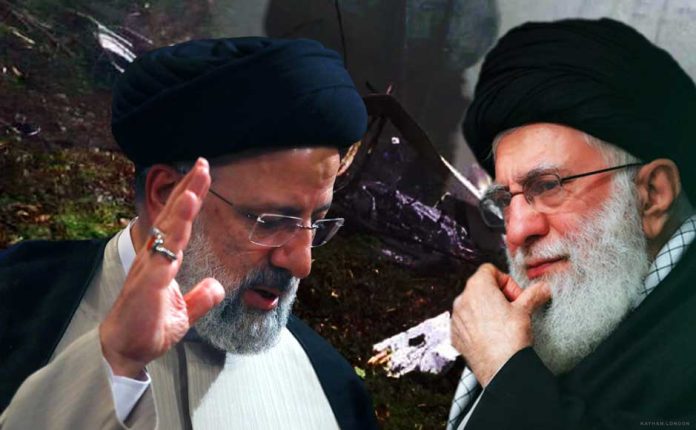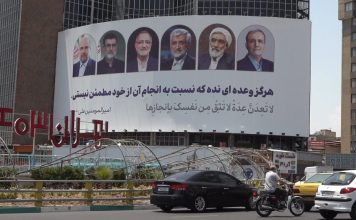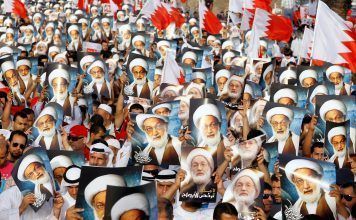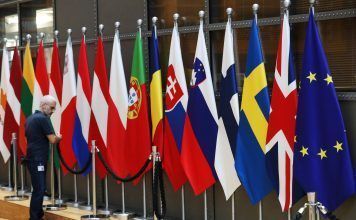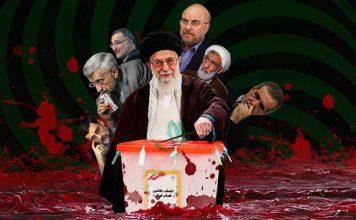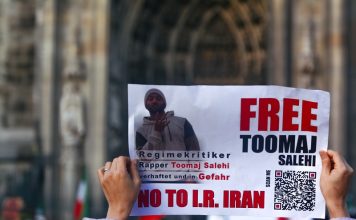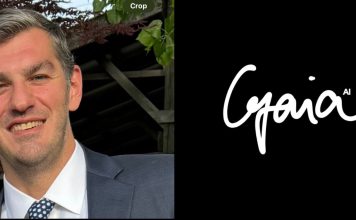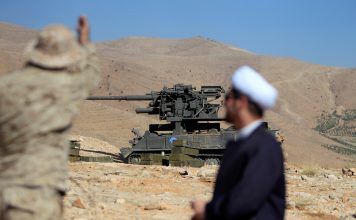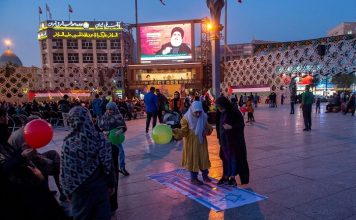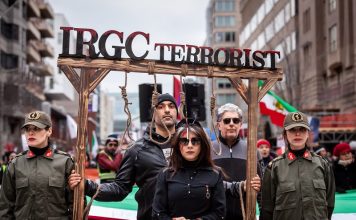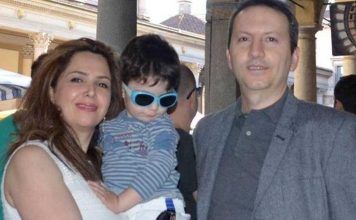By Ahmad Rafat
Iran is to hold a presidential election on June 28 to find a successor to Ebrahim Raisi, who died in a helicopter crash on May 19. The incident also claimed the lives of Raisi’s Foreign Minister, Hossein Amir-Abdollahian, and six others.
The Guardian Council, responsible for vetting election candidates, has approved only six out of the initial 80 individuals registered to run in the upcoming presidential election.
Five of the six candidates are from fundamentalist factions, including Mohammed Baqer Ghalibaf, the current Speaker of the Majlis (Iranian Parliament), Saeed Jalili (a member of the Expediency Council,) Alireza Zakani (Mayor of Tehran,) Mostafa Pourmohammadi (former Justice Minister,) and Amirhossein Ghazizadeh Hashemi (Iran’s Vice President and head of the Foundation of Martyrs and Veterans Affairs).
Massoud Pezeshkian (the only reformist in the race) is a Majlis deputy representing the Tabriz electoral district in the northwestern province of East Azerbaijan.
The Guardian Council disqualified several prominent political figures who held senior positions in previous governments and executive branches, including former Majlis Speaker Ali Larijani (in office from 2008 to 2020) and former president Mahmoud Ahmadinejad (in office from 2006 to 2013.)
The Guardian Council disqualified Pezeshkian from the 2021 election but has allowed him to stand in the forthcoming presidential election. Pezeshkian previously served as the Health Minister during President Mohammad Khatami’s second term in office (from 2001 to 2005.)
Pezeshkian’s inclusion in the presidential race serves several objectives for Khamenei, who hopes to persuade the disillusioned public who have lost hope in real change and reform within the Islamic Republic to vote in the forthcoming presidential election.
By allowing Pezeshkian to run in the presidential election, the Islamic Republic is making a significant move to portray the electoral process as inclusive and democratic, encompassing all factions, particularly the reformists.
This strategy presents a challenge for Khamenei, who hopes to convince the public that substantial changes can emerge from participating in the elections. However, he has undeniably secured support from the reformist faction in the upcoming election.
Former President Mohammad Khatami, often regarded as the reformist faction’s moral compass, abstained from voting in the March 2024 Majlis elections and the Assembly of Experts elections. However, he is reportedly interested in participating in future elections, provided certain modifications are implemented. Over 150 prominent reformists have issued a public statement encouraging citizens to vote in the upcoming presidential election scheduled for June 28.
Reformist newspapers have coined the term “5+1” to refer to the six candidates and promote Pezeshkian as the sole solution to the Islamic Republic’s challenges, which include economic crises, rampant corruption, and the nuclear program.
In the upcoming election in Iran, Ghalibaf and Jalili stand out among the conservative candidates for having the most extensive political and job portfolios. The choice between these two individuals holds significant implications for the Islamic Republic’s future policies, particularly concerning the nuclear issue and relations with the West.
Jalili’s staunch opposition to any agreement with the West regarding Iran’s nuclear program suggests a continuation of a policy of isolation and defiance akin to North Korea’s approach. If Jalili were to assume the presidency with Khamenei’s blessings, it could signal a shift towards further confrontation rather than engagement on the nuclear front.
In stark contrast to Jalili, Ghalibaf, despite his military background as a Brigadier-General in the Islamic Revolutionary Guards Corps (IRGC), advocates for engaging in dialogue with the West, particularly on issues like the nuclear program, to ensure the current government’s continuity.
Ghalibaf, who has run in four previous presidential elections, reportedly established his campaign team immediately after Raisi’s death. His team swiftly started a campaign both within Iran and internationally.
Over the past two weeks, individuals closely associated with Ghalibaf have reportedly contacted various European governments and the U.S. to persuade them that his presidency could facilitate better communication channels between Iran and the Western world.
Individuals who have contacted European authorities seeking support from Western governments for Ghalibaf have engaged with universities and think tanks in these countries. Kayhan Life has verified these communications through its contact with an Italian diplomat.
The individual who has been in touch with government officials and influential figures in the Italian Parliament is working with a university in Italy, and endorsing Ghalibaf as the sole presidential candidate capable of reaching a consensus with the West on nuclear matters.
They are promoting Ghalibaf as the candidate who, if elected president, could ease tensions with European nations and the U.S. and prevent new crises in the war-torn Middle East.
U.S.-Sanctioned Ex-officer Among Iranian Candidates to Replace Raisi
In Iranian politics, lobbying for Ghalibaf in Western countries serves a strategic purpose beyond influencing the votes of Iranian citizens. Electing a president in Iran is unique because of the role of Khamenei, who ultimately decides who should win the elections. Iran is currently facing significant economic challenges, making it crucial for the leadership to consider candidates who can address these issues effectively.
Proponents of Ghalibaf aim to showcase his potential to improve relations with the West and ease some of Iran’s economic woes. This external pressure can influence Khamenei’s calculation when deciding on a presidential candidate who can navigate these complex geopolitical and economic circumstances.
In contrast to Ghalibaf’s perceived pragmatism, his rival Jalili stands out as a prominent figure representing the Shia-oriented Islamic fundamentalist discourse. During President Ahmadinejad’s administration, Jalili was pivotal in leading Iran’s nuclear negotiations. During the negotiations, the UN passed six resolutions denouncing Iran’s nuclear program, leading to stringent sanctions imposed on Iran.
Since then, Jalili has consistently opposed any restrictions on Iran’s nuclear program and has maintained a radical perspective on relations with the West. If Khamenei selects him as the future president, the choice could escalate tensions between Western nations and the Islamic Republic.
In recent years, under Raisi’s presidency, Iran has attempted to downplay its differences with the West concerning the nuclear issue. On June 6, the International Atomic Energy Agency (IAEA) Board of Governors passed a resolution censoring Iran for its lack of transparency regarding its nuclear activities. The IAEA’s report to the UN Security Council has somewhat overshadowed the upcoming presidential election scheduled for June 28.
Hossein Shariatmadari, the editor-in-chief of the Kayhan newspaper in Tehran, known for his hardline stance and close ties to Ayatollah Khamenei, has expressed suspicions regarding the timing of the IAEA resolution right before the presidential election in Iran. He believes this move was orchestrated to bolster pro-Western candidates in the election.
In the 2013 Iranian presidential election, the nuclear issue played a significant role in Hassan Rouhani’s victory. One notable moment during the election campaign was when Rouhani, in a televised debate, pulled out a key from his pocket, symbolically claiming that with that key, he could unlock the sanctions and resolve the crisis in relations with Western countries.
Two years after Rouhani’s election, his foreign minister, Mohammad Javad Zarif, played a crucial role in negotiating the Joint Comprehensive Plan of Action (JCPOA) in Vienna, commonly known as the Iran nuclear deal.

